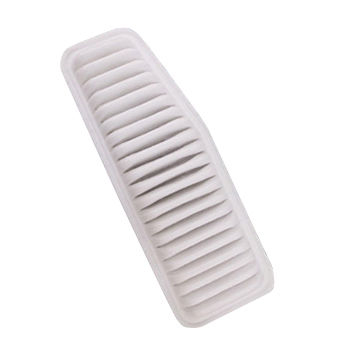окт. . 14, 2024 04:32 Back to list
High-Performance Air Filter Materials for Optimal Bulk Applications and Efficiency
Understanding Bulk Air Filter Material Products
In the contemporary world, air quality has emerged as a significant concern for both health and environmental reasons. With increasing industrial activities, urbanization, and pollution, the demand for effective air filtration systems has surged. Among the various components of these systems, bulk air filter material products play a pivotal role in ensuring clean and safe air. This article delves into the significance, types, applications, and advancements in bulk air filter material products.
Significance of Air Filter Materials
Air filter materials are designed to trap harmful particles, allergens, and pollutants, ensuring that the air we breathe is free of contaminants. This is particularly crucial in industries such as manufacturing, pharmaceuticals, food processing, and HVAC systems, where airborne particles can lead to product contamination and health risks. Additionally, with the rise in awareness about indoor air quality, residential applications are also increasingly adopting high-efficiency air filter materials.
Types of Air Filter Materials
Bulk air filter materials come in a variety of types, each designed to cater to specific requirements based on efficiency, durability, and environmental considerations
1. Fiberglass Filters Commonly used in residential HVAC systems, fiberglass filters are cost-effective and efficient for removing larger particles like dust and pollen. However, they offer limited efficiency in filtering smaller pollutants.
2. Pleated Filters These filters have a larger surface area compared to fiberglass filters, enhancing their ability to capture smaller particles. They are available in various efficiency ratings, making them suitable for both residential and commercial applications.
3. HEPA Filters High-Efficiency Particulate Air (HEPA) filters are designed to trap at least 99.97% of particles that are 0.3 microns or larger. They are widely used in hospitals, cleanrooms, and industries requiring stringent air quality standards.
4. Activated Carbon Filters Known for their ability to absorb odors and volatile organic compounds (VOCs), activated carbon filters are often used in conjunction with other filter types to enhance air quality.
5. Electrostatic Filters These filters use electrostatic attraction to capture particles. They can be reusable and washable, making them a sustainable choice for air filtration.
Applications of Bulk Air Filter Material Products
The applications of bulk air filter materials are extensive, spanning various industries and settings
bulk air filter material product

- Residential Use Homeowners increasingly recognize the importance of air quality. Bulk air filter materials are used in HVAC systems to maintain clean indoor air, reducing allergens and respiratory issues.
- Commercial Buildings Offices, schools, and hospitals utilize air filter materials to ensure a healthy environment for employees, students, and patients, particularly in spaces with high occupancy.
- Industrial Settings Factories and manufacturing plants rely on bulk air filter materials to reduce pollutants emitted during production processes, ensuring compliance with environmental regulations.
- Automotive Industry Air filtration is crucial in vehicles to improve cabin air quality and protect engine components from contaminants.
Advancements in Air Filter Technologies
The air filtration industry is continuously evolving with advancements in technology and materials science. Innovations include
- Nanotechnology The development of nanofiber materials allows for filters that are lighter, more efficient, and capable of capturing smaller particles than traditional materials.
- Biodegradable Filters As environmental concerns grow, manufacturers are exploring biodegradable materials that reduce the ecological footprint of air filters.
- Smart Filter Systems Incorporating IoT technology, smart filters monitor air quality in real-time and adjust filtration levels based on detected pollutants.
- Enhanced Durability Advances in material science have led to the creation of filters that can withstand higher temperatures and humidity, extending their lifespan and reducing maintenance costs.
Conclusion
In conclusion, bulk air filter material products are vital for maintaining clean air across various applications, from residential settings to industrial environments. With numerous types available, each serving unique needs, the ongoing advancements in technology promise to enhance air filtration's efficiency and sustainability. As awareness of air quality grows, the importance of these materials will only increase, underscoring the need for continued innovation in this critical field. Ultimately, investing in quality air filter materials not only protects health but also contributes to a cleaner, safer environment for all.
-
Active Carbon Air Filter for Air Purifier – Superior Filtration Efficiency
NewsJul.27,2025
-
High Strength Orange PU Glue for Versatile Bonding Solutions
NewsJul.26,2025
-
Active Carbon Air Filter for Air Purifier – Efficient Odor & Allergen Removal
NewsJul.25,2025
-
Active Carbon Air Filter for Air Purifier – Superior Odor & Allergen Removal
NewsJul.24,2025
-
High-Efficiency Active Carbon Air Filter for Air Purifier | Odor & Allergen Removal
NewsJul.23,2025
-
Active Carbon Air Filter for Air Purifier – High Efficiency Filtration Solution
NewsJul.22,2025
